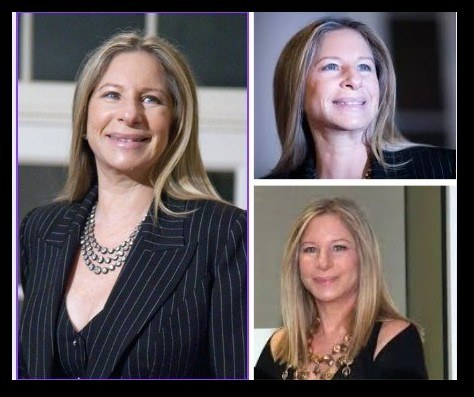Barbra Streisand’s journey to stardom wasn’t paved with easy compliments or smooth advice. Before she even sang a single note, she was told to change everything about herself — get a nose job, fix her teeth, even pick a different name. But Barbra said no. And by staying true to who she was, she became a legend.
Growing up in a Brooklyn housing project, Barbra was the girl who never quite fit in. Too loud, too smart, too Jewish in a world that often wanted her to be less. When she was just a toddler, her father passed away, and her mother, struggling herself, told Barbra she wasn’t pretty enough. So instead of trying to fit a mold, Barbra found her own power in her voice — bold, unique, and utterly captivating. She’d sing in empty hallways just to hear the echo, record herself on a reel-to-reel tape, and listen back again and again, chasing something close to perfection.
She wasn’t looking for approval; she was chasing excellence.
By the time she was 19, Barbra was sneaking into gay clubs, performing for tips, dressed in thrift-store clothes with smudged eyeliner, her voice soaring like a siren’s call. People would stop mid-conversation just to listen. That voice didn’t ask for attention — it demanded it.
But the industry wasn’t ready for her. Casting directors dismissed her as “too ethnic,” too different, not the kind of star they wanted. Instead of shrinking away, Barbra leaned in even harder. When she landed the role of Fanny Brice in Funny Girl on Broadway, she didn’t just play the part — she became the embodiment of a misfit who refused to be rewritten or softened.
Her career blossomed with Oscars, Emmys, and Grammys, but she didn’t stop there. Barbra took the reins, directing, producing, and writing her own projects. In a male-dominated industry, she demanded creative control, insisting on the final cut of her work. When politics entered the picture, she spoke her mind, even if it meant losing fans. When told women couldn’t direct, she built her own studio. When told to quiet down about her beliefs, she raised her voice louder.
Barbra wasn’t fearless. She was scared — terrified of singing live, of criticism, of being misunderstood. But she did it anyway.
She never tried to be relatable. Instead, she aimed for excellence. And in doing so, she became a beacon for anyone who ever felt like an outsider.
Barbra Streisand didn’t just change the sound of stardom. She changed what it meant to be a star — by never changing herself.
